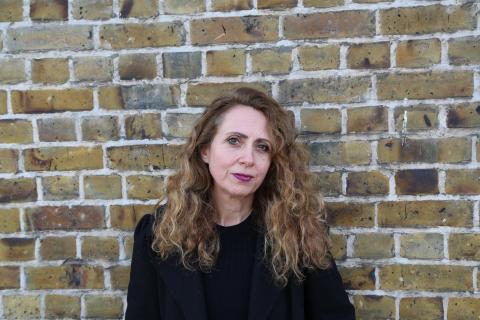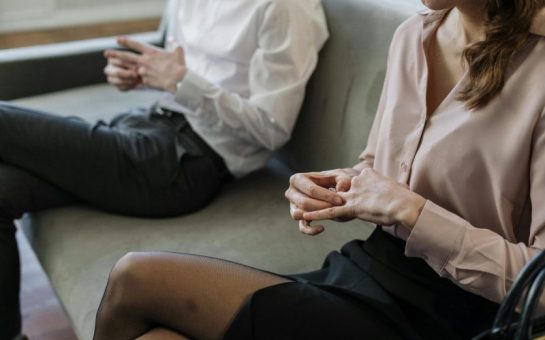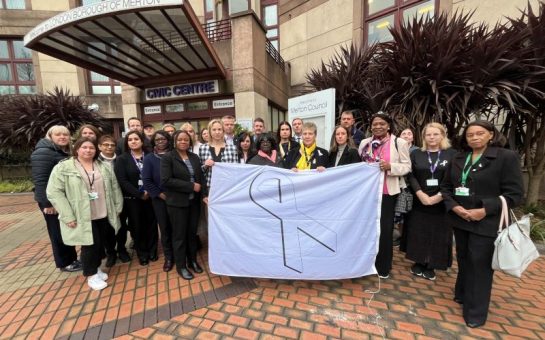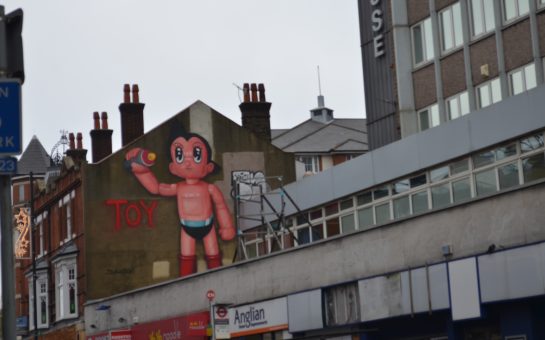By Mimi Swaby
April 30 2020
Follow @SW_Londoner
Traumatised and with nowhere to turn, Ava is terrified of her next move.
The young mother from North London fled from her abuser before the final lockdown was imposed.
Such was the level of abuse she thought it safer to flee, making herself and her baby homeless, than stay in the hands of her abuser.
“He left me and my nine-month-old baby boy with nothing. I really don’t know how to survive until next month. My child is unwell, and I don’t have any money to buy medication,” Ava said.
“My local food bank is closing, which is vital for me to survive. I really, really don’t know what to do.”
With refuges full, Ava and her baby are resorting to sleeping on friends’ sofas. Her abuser also left her penniless after emptying their joint bank account, and continues to be an active threat.
We have been instructed to stay at home for our safety. But for many, home is the most dangerous place to be.
This is what thousands of women in isolation are facing: the impossible decision enduring life with their abuser or fleeing into the unknown.
The death rate due to domestic violence has doubled, with at least 14 women and two children having lost their lives across the UK since lockdown began.
There has finally been a national awakening and action is in the pipeline.
The National Police Chiefs’ Council stated you can now move to a friend’s address for several days to allow ‘cooling-off’ from arguments at home.
And the Home Secretary Priti Patel will release an extra £2 million to pay for domestic abuse helplines and online support. This is after calls to the national domestic abuse helpline soared by 120% in 24 hours during the third week of lockdown.
Solace Women’s Aid is a leading domestic abuse charity in London.
They are currently supporting 2,300 women during lockdown, with demand for their services increasing at an alarming rate.
CEO Fiona Dwyer said: “As if dealing with abuse is not enough, many are facing some stark choices in terms of food and a safe place to stay if they really must flee.
“Women should not have to choose between Coronavirus and abuse.”
Helplines are running around the clock as for many it will only be a one-time call.
If you are experiencing domestic abuse, you do not need to stay at home. For support and advice in London, contact:
— NHS London (@NHSEnglandLDN) April 17, 2020
☎️@SolaceWomensAid advice line: 0808 802 5565
☎️@WomenandGirlsN advice hub: 0808 801 0660
☎️@rightsofwomen advice line: 020 7608 1137#YouAreNotAlone pic.twitter.com/12r0du660Y
Solace’s director of services Judith Banjoko said: “The window of opportunity for women to call has really shortened. It’s imperative we get these calls.”
Four weeks into lockdown, calls to their helpline have increased by 50% with website visits up by over 70%. They are now bracing for an enormous spike in demand after lockdown ends.
In 2019, the Office for National Statistics reported that almost one in three women aged 16-59 will experience domestic abuse in their lifetime but it takes an average of 6.5 years of living with abuse before reaching out for help.
Ms Banjoko said:“Women are hesitating a lot more around leaving because they don’t know what is available or out there.
“There will be lots of women still living with their perpetrators because they don’t feel there is anywhere to go.”
The refuge network shrunk due to cuts. If refuges were under pressure before #COVID2019 just wait until lockdown is over & we face a surge of women leaving abusive relationships. We need emergency hotels now & resources to provide safe long-term accommodation for women pic.twitter.com/DESbKvtoU4
— Solace Women’s Aid (@SolaceWomensAid) April 22, 2020
One challenge is finding suitable accommodation for women to self-isolate safely.
Ms Banjoko added that the pool for refuge space is quickly shrinking because women aren’t able to move on.
If there is no space, local authorities are obliged to support those in ‘priority need’.
Sixty MPs, including former minister Robert Halfon, called on the Home Secretary to introduce emergency measures for domestic abuse victims, including using hotels as temporary refuges and for them to be considered ‘priority need’ by housing services.
In contrast, the French government has booked out 20,000 hotel rooms as refuges.
Ms Banjoko said emergency hotels are vital as they must get women out of dangerous environments quickly. However she warned that there needs to be consideration for rehousing afterwards.
Sarah Michael, 56, is a survivor of domestic abuse and Solace Ambassador.

SURVIVOR: Sarah is urging victims of domestic abuse to help get
Her abuse started aged 30 when her four children were under ten. The physical violence escalated when her youngest was nine months old.
When Sarah told her abuser she was leaving, he flew into a rage, broke her ribs and ruptured her spleen. She arrived at hospital with only minutes to spare.
Sarah said: “There will be lots of women who won’t see a way out. It will be like living in a recurring nightmare and escaping will be a lot harder for women now.”
For Sarah the nightmare was all too real. She is urging women to try and contact the outside world for help.
She said: “I thought I couldn’t live without him because he would kill me if I left him. It’s terrifying. I never saw a way out. But help is out there.
“It is so important to let people know what’s going on, you don’t want to end up being another statistic.”
#YouAreNotAlone




